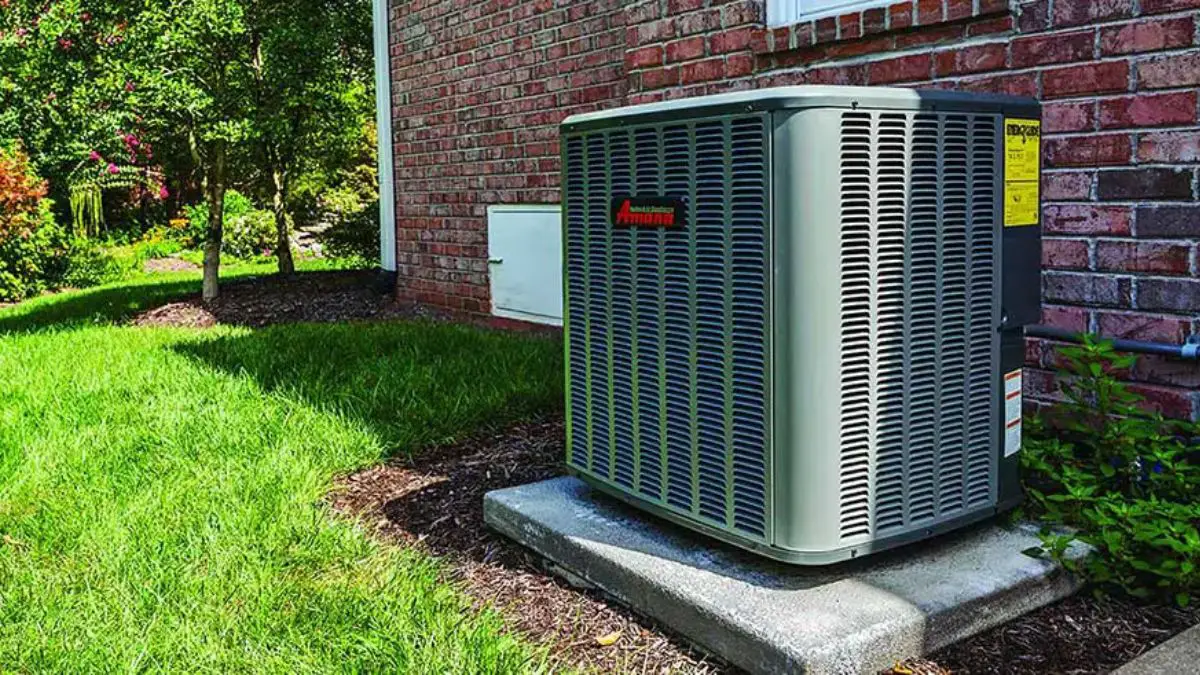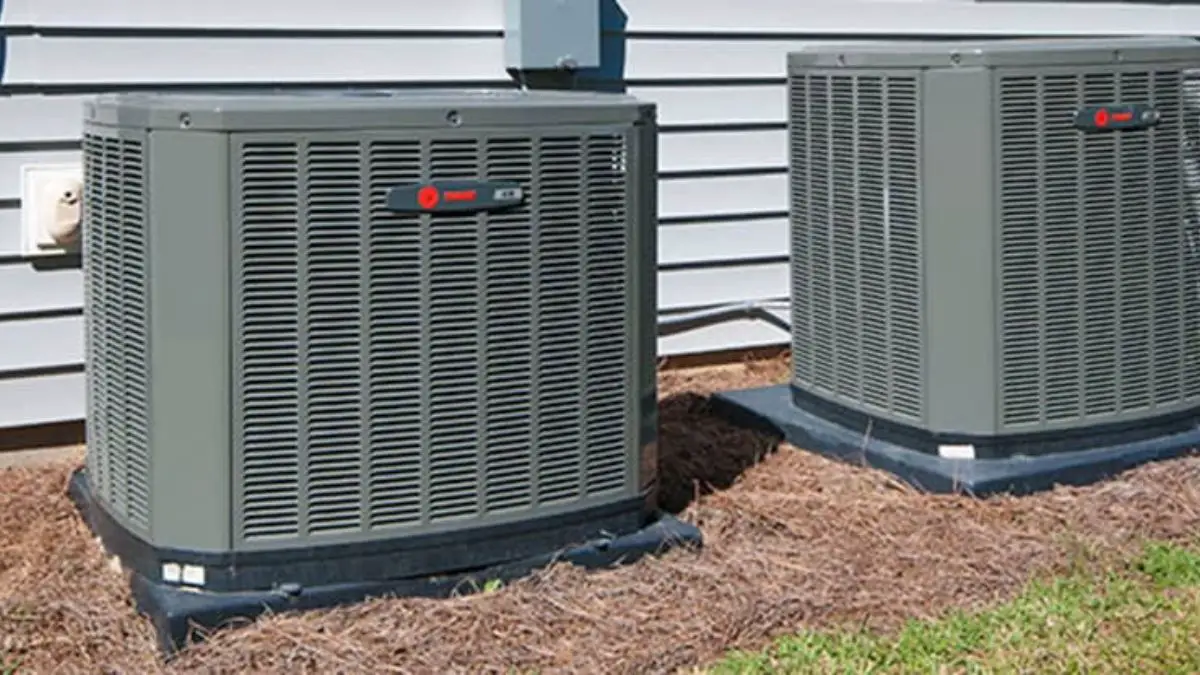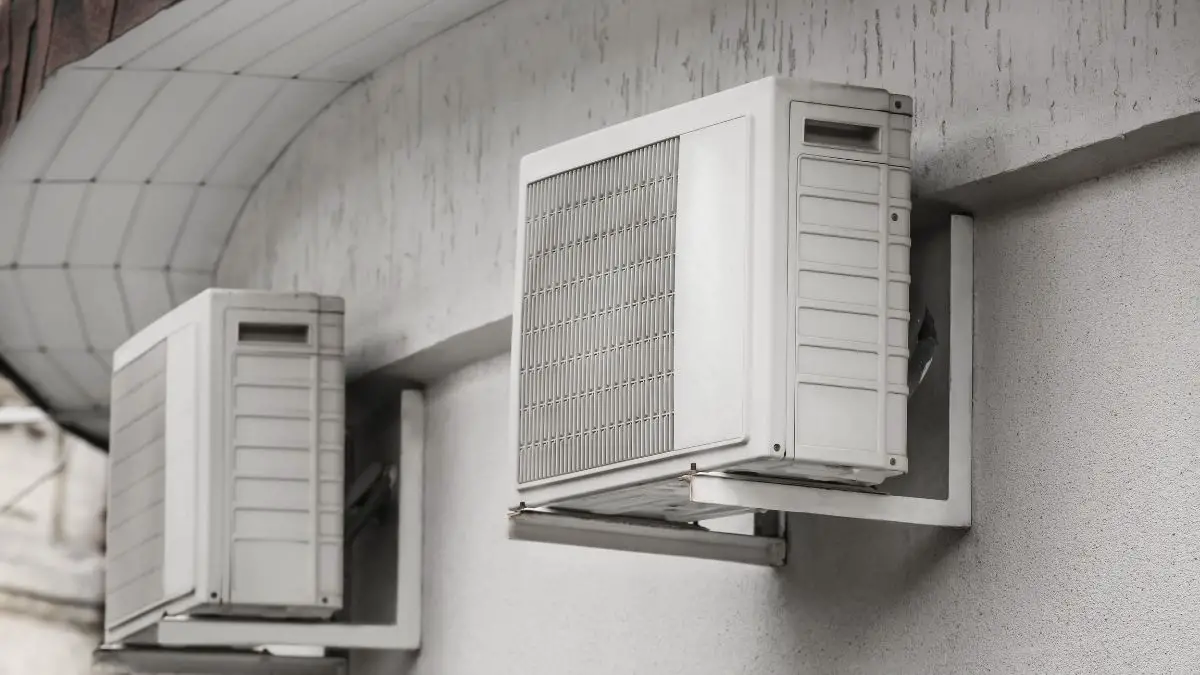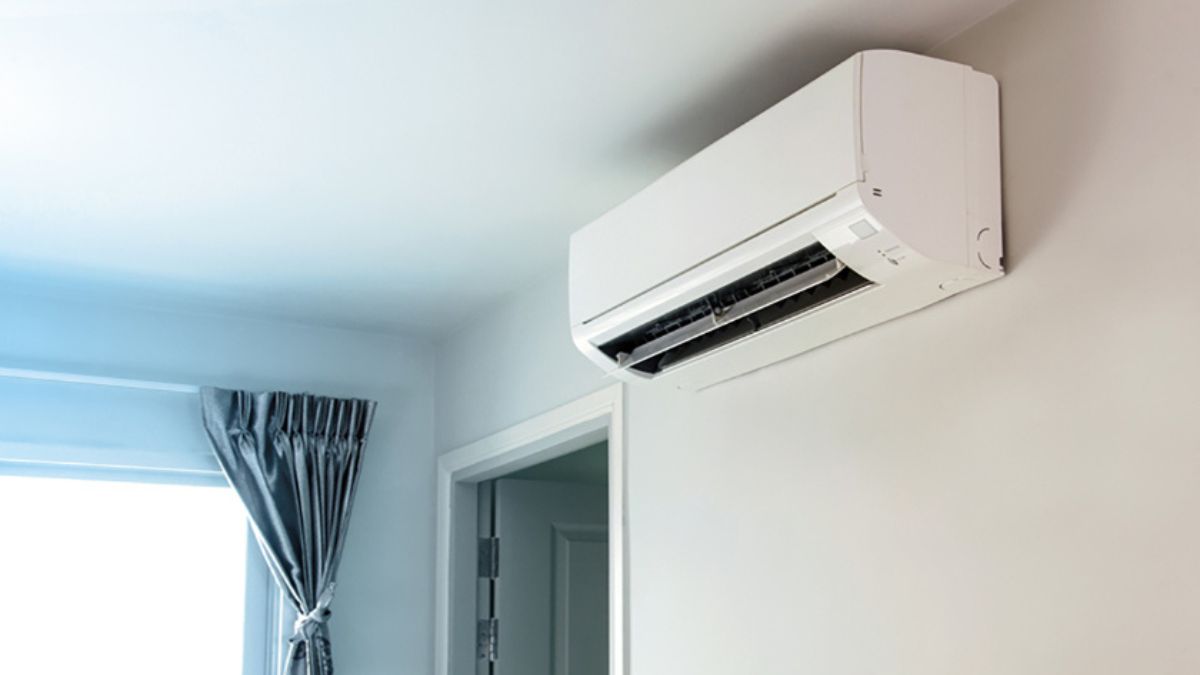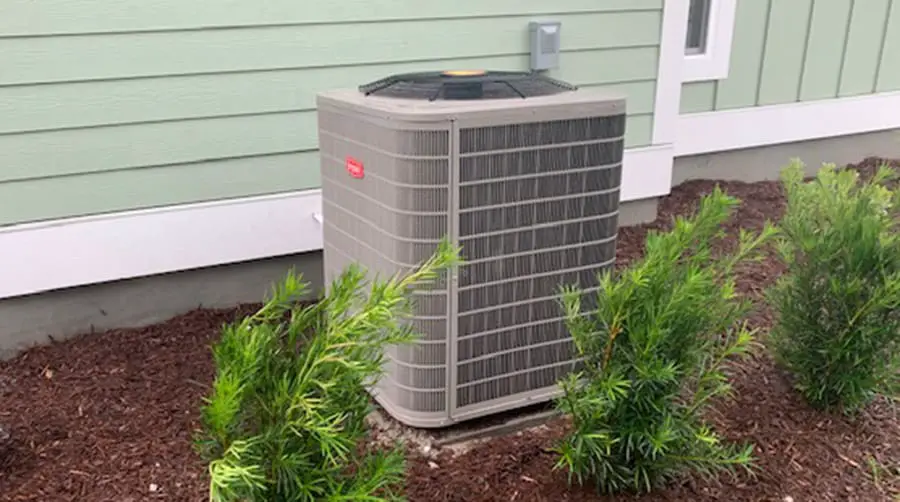
Heat pumps are a great way to heat your home during the winter and cool it during the summer. Heat pumps are relatively complicated systems and certainly not without their good and bad moments.
One of the common reasons for concern among many homeowners has to do with heat pumps leaking water.
Heat pumps produce condensation as part of regular operation. When condensation is produced, it drains from the heat pump through a drain pipe. However, when the discharge pipe becomes clogged, water can back up and leak. Other reasons heat pump condensate include sweating around the outside of the unit or ductwork or an internal leak around the evaporator coil.
I have had more than my fair share of problematic heat pumps throughout my work as a home inspector. Although I know what to look for, many homeowners may not.
Your Heat Pump Should Leak Water
Just because your heat pump system leaks does not mean it has been damaged or needs repairs. Of course, this does not mean the leaks should not be attended to. It should. If you notice any leaks, make sure to have them inspected and addressed.
Below you will find why a heat pump leaks water that does not necessarily indicate a severe problem with the system. However, in some instances, these may require taking further action nonetheless.
I classify them as good reasons because these are either entirely normal or indicative of a problem. Understanding the symptoms is a blessing in disguise, as this will give you time to act and prevent any future damage to your home or heat pump.
Heat Pumps Should Produce Condensation
During the regular day-to-day operation of a heat pump, a low amount of condensation is created. Heat pumps generate condensation in both cooling and heating mode.
Heat pumps work by taking heat from one place and, essentially, moving it to another place. During cooling mode, the heat pump transfers heat from indoors to outdoors. And in the heating mode, the heat pump takes the heat from outside (however small the amount of heat outdoors maybe) and moves it indoors.
While in heating mode, the condensation may form on the outdoor unit and drip into the soil. In cooling mode, the condensation forms in the inside unit and drips into the drain line.
An air-source heat pump produces between 5 and 20 gallons of condensation per day, depending on the ambient humidity levels and usage.
Since water leakage is a completely natural process, the only thing that we can do in this case is making sure that the water is not allowed to reach any home’s structural components.
The Temperatures Outside Are Too Low
If you are using an air-source heat pump during a freezing time of the day, you may notice that the outdoor unit leaks more water than usual. Running the air-to-air heat pump at temperatures below 55°F (12°C) causes the coils to freeze due to the hot air circulating through the system.
As the ice accumulates, the unit will eventually go into a defrosting mode which can easily be identified as the indoor unit will stop working for a few minutes until it defrosts.
As the outdoor unit defrosts, the ice will melt and may produce so much water that it overflows the drain pan under the unit.
Things can get especially tricky if the ambient temperature outside goes below 50°F (-15°C). Running the unit at such a low temperature may cause the thawed water to freeze again immediately as it accumulates in the drain pan before reaching the drain line. In some instances, it may even start building up and accumulating all over the outdoor unit.
In these cases, it is best not to use the air-to-air heat pump. This kind of leakage does not mean your heat pump has been damaged yet, as it is customary to leak when operated under low-temperature conditions.
However, HVAC professionals do not recommend running an air-source heat pump in cold weather because this can damage the unit.
Poor Attic Ventilation
Poor attic ventilation may be one reason you are experiencing leaks from the ducts (if you have a ducted heat pump).
When there is a difference between the ambient temperature in the attic and the air inside the ducts, condensation will form.
This happens mostly in places where there is poor ventilation (attics and crawl spaces).
This is not necessarily a sign of a failure in the system, but instead that the ventilation in the area needs to be improved to reduce the indoor humidity.
High Indoors Humidity
The ideal indoor humidity level for health and comfort is considered to be between 40% to 50%. This, again, is limited mainly to heat pumps with ducts. And even if you live in a very humid area, heat pumps can help reduce the humidity levels in your home.
However, that may not always be happening due to different reasons. In which case, if there is humidity build-up in your home due to recent flooding, heavy rains, sewer problems, regular cooking indoors, and drying clothes indoors, this could lead to condensation and water dripping from the ducts. (The same rule applies to outdoor units in high-humid areas.)
Reasons Your Heat Pump Leaks Because of Failure
As you have seen from above, a heat pump system may be expected to leak even when there is nothing wrong with the system itself. But, of course, that is not always the case.
Below you will find why a heat pump will leak, which is indicative of a problem. These should be attended to as soon as possible.
Worn out or Misaligned Drain Pan
Heat pumps have built-in systems responsible for removing the condensation that builds up during regular operation.
Take a look at the overflow drain pan—it may have been misaligned. Sometimes the outdoor unit may leak simply because of an old drain pan with rusted and developed holes.
This is not necessarily a serious problem, and it can be easily fixed by finding a new drain pan replacement.
Disconnected Condensate Drain Line
One reason why some heat pump systems may leak water is because of improperly connected drain lines. It is not unheard of for a condensate drain line to come loose over time. This could cause leakage both indoors or outdoors.
A line that has come loose is not necessarily indicative of a serious problem and is, usually, easily fixable. All you have to do is securely connect the drain line.
Clogged Condensate Drain Line
In my experience, one of the primary culprits when it comes to a leaking heat pump system is a problem with the condensate drain line.
Condensate drain lines can get clogged over time. Dirt, dust, mold, algae, and other types of debris may start to form, build-up, and eventually clog the lines causing water to overflow.
In this case, the drain line will need to be thoroughly cleaned to prevent any further leaks and damage. Clearing can sometimes be achieved with a bit of bleach or even vinegar or blowing compressed air through the drain pipe.
Unfortunately, sometimes the debris may have reached the condensation line inside the unit. In this case, a trained specialist should assess the system’s condition and the best way to clean it.
Blocked Air Ducts
Ducted heat pump systems can also leak as a result of blocked ducts. The blockage will obstruct the normal airflow within the ducts, and this will cause temperature swings within the ducts, which will lead to sweating and condensation.
This problem is usually easily fixable; removing the blockade will allow the system to start working back as normal.
Poor Insulation Practices or Deteriorated Insulation
A problem with the insulation is the most common reason for leaks right after drain line problems.
This also applies to geothermal (or ground-source) heat pumps—especially older, 30 to 50-year-old systems. The ground loops may start to wear out, and the connector points may begin to leak water.
For example, if you live in very high humidity areas like Florida, this may cause condensation to build up in and on the ductwork. Typically, this is a result of poor insulation practices, worn-out duct seals, or a lack of vapor barrier.
Worn out or bad seals will lead to condensation and subsequent water drips because the warm air outside the ducts will mix with the cool air inside. A similar thing happens with worn-out or bad insulation. The ductwork will be exposed to different temperatures, which will lead to condensation.
However, having too much insulation may also potentially lead to condensation, so both extremes should be avoided.
Bad or Dirty Air Filters
The air filters that can be found on air-source heat pumps must be kept clean and in good quality.
With time, however, air filters will start to get dirty. This will eventually cause water drips and leaks. This dirt and dust that accumulates on them will affect the efficacy of the air filter and will compromise the cooling power and dehumidifying capabilities of the whole system.
A dirty filter by itself will not cause a leak, but it will lead to other problems that may result in water leaks.
If the air quality drops due to unexpected events like wildfires, this could lead to the air filters getting dirty or wearing out faster than expected. (Animal fur may also contribute to that.) Make sure to inspect the condition of the filters regularly.
Dirty Evaporator Coil
Heat pumps have a cold evaporative coil, which may start accumulating dirt and grime with time. This coil usually removes the condensation from the air and drains it down the drain pan. But if it gets dirty, the moisture may start dripping off the coil and onto the ground.
Low Levels of Refrigerant
During the normal operation of a heat pump, there should not be any loss of refrigerant. The refrigerant changes its form. It turns from liquid to gas and vice versa, but its volume should not change.
Refrigerant leakage can occur at connector points where the insulation may have been compromised, corroded, or worn out.
As the refrigerant levels go down, this will impact the heat pump efficiency. Ice will start forming over the evaporator coil, which will create big pools of water around the outdoor unit. There can also cause water leakage indoors.
Make sure to regularly check and carry out the necessary maintenance to keep the system in good condition.
Damage That Can Be Caused by an Unrepaired Leak From Failure
A heat pump that leaks water should be inspected, and the issues must always be addressed as soon as possible.
If the issue is not fixed, this may eventually lead to a whole myriad of problems. (Many of which will end up being quite expensive to fix.)
Structural Damage
The severity of the water damage you may experience can vary greatly depending on how bad the leak was and how long it lasted. Give it enough time, and you may be looking at some severe structural damage.
If you catch the leak early on, this could mean that you may be able to get away with simply leaving the area to air dry for a few hours or days. In other cases, you may need to replace some of the drywall.
But if that problem has been present for a while, this could lead to severe ceiling damage and collapsing, warped flooring, permanent wall and furniture damage, and so more.
Another thing worth noting is that this damage if deemed avoidable, may not be covered by your home’s insurance.
Mold Growth
The presence of water will allow mold to grow and freely spread. Although it may seem harmless at first, these small spots of mold should not be underestimated.
Mold usually is not dangerous, but it does affect the quality of the air indoors. Technically speaking, there is mold in the air we breathe every day. So not all people will be affected by the mold, but others may be more sensitive. However, long-term and heavy exposure to mold can cause allergic reactions, itchiness, stuffy nose, asthma, and more.
In some instances, the mold may be only on the surface level, which is usually easy to remove. However, sometimes it may have gone a lot deeper, and a replacement of the flooring and drywall may be required.
In addition to that, not all mold is perfectly harmless—mold is generally considered a health hazard. To make matters worse, mold tends to come back if not properly treated and cleaned. (Mold damage expenses are another category that is usually not covered by home insurance. And while we are on the subject, mold can also cause structural damage over time.)
Compressor Damage
In the case of refrigerant leakage or forcing the heat pump to work under unfavorable conditions—read freezing temperatures—it will eventually damage it, and it may even destroy the compressor.
The ice that will start forming along the coils is a self-perpetuation process. The more ice, the less the heat absorption, the less the heat absorption, the faster the ice accumulates.
Even turning off the heat pump and waiting for the ice to melt will not do any good as once the system is turned back on, the same process will repeat until the refrigerant has been refilled and the leakage has been dealt with.
A refrigerant leakage will also affect your electricity bill. A loss as low as 10% in refrigerant may increase electrical usage by as much as 20%.
Soil and Water Contamination
When a ground loop leakage occurs, things can get a little tricky.
Usually, only water runs through the ground loop, but in some instances, the water may be mixed with antifreeze to prevent damage to the loop during the winter. (In some instances, even refrigerant may leak into the soil.) if the leak is left unattended, it may contaminate and harm the soil and plants and the local water.,
Telltale signs of an underground leak are wet or muddy spots on the ground.
Even though the problem may be underground, it will also manifest itself aboveground in the same way that a regular air-source heat pump does. (Frozen coils, excessive noise, loss of heating or cooling power).
These leaks are located by using environmentally-friendly dyes inserted into the water, circulating the system. The dyed water will eventually leak and make its way to the surface.


